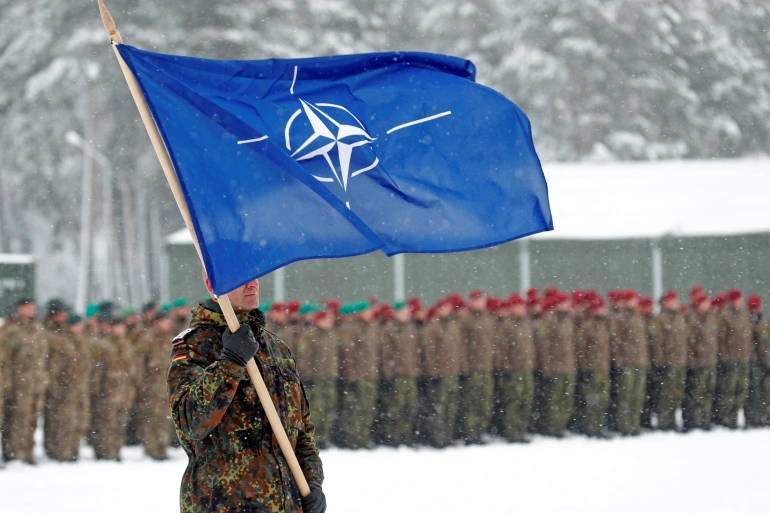As the United Kingdom warned that Russia, the continent’s largest natural gas supplier, was “very likely” to invade Ukraine, NATO Secretary General Jens Stoltenberg said Europe needed to diversify its energy supply.
The European Union relies on Russia for over a third of its gas imports, and any disruption would exacerbate an already-existing energy shortage.
“We are concerned about the energy situation in Europe because it illustrates the vulnerability of being overly reliant on one natural gas source, and that is why NATO allies agree that we must work and focus on supply diversification,” NATO Secretary-General Jens Stoltenberg said on Sunday.
Tensions have grown as Russia deployed 120,000 troops on the Ukrainian border and requested that NATO withdraw troops and weaponry from Eastern Europe, as well as ban Ukraine, a former Soviet state, from joining NATO.
In the case of a Russian invasion, Stoltenberg said NATO has no intentions to deploy combat forces to non-NATO member Ukraine, adding that “we are concentrated on giving support.”
If Russia is “serious” about de-escalating tensions, Ukrainian Foreign Minister Dmytro Kuleba has urged on it to pull back its soldiers and resume talks with the West.
Kuleba tweeted, “Diplomacy is the only responsible way.”
Moscow rejects any invasion plans, but said on Sunday that it would seek NATO to clarify if it wants to carry out crucial security obligations, after previously claiming that the alliance’s answer to its demands was insufficient.
On national television, Russian Foreign Minister Sergei Lavrov said, “If they do not plan to do so, they should explain why.” “This will be a deciding factor in our future proposals.”
Nikolai Patrushev, the head of Russia’s Security Council, likewise dismissed Western invasion fears.
The US, which has warned Russia with further penalties if it invades Ukraine, has stated that it is waiting for a response from Moscow. It states that NATO will not withdraw from Eastern Europe or deny Ukraine membership, but that it is willing to talk about issues like arms control and confidence-building measures.
Two senior US senators working on a measure indicated they were close to reaching an agreement on sanctions against Russia. Targeting major Russian banks and government debt, as well as providing more lethal support to Ukraine, are among the measures.
According to a White House official, if Russia invades Ukraine, the Biden administration wants to spare ordinary Russians from the brunt of US export prohibitions, focusing instead on industrial sectors.
Washington has spent weeks attempting to reach an agreement with European partners on tough measures, but the topic is polarising, with Germany urging “prudence.”
Meanwhile, the United Kingdom announced this week that it will present new legislation to widen the scope of sanctions it might use to dissuade Russian President Vladimir Putin from invading Ukraine. It also proposed a large-scale NATO deployment as part of a plan to fortify Europe’s frontiers.
“We believe it’s very likely that [Putin] is planning an invasion of Ukraine.” That’s why, via deterrence and diplomacy, we’re doing everything we can to persuade him to stop,” Foreign Secretary Liz Truss told BBC television.
Truss, who will visit Ukraine and Russia in the coming weeks, told Sky News that the law will allow the UK to target a much broader range of targets, “so there can be no one who thinks they would be immune to those sanctions.”
“Nothing is off the table,” Truss responded when asked if the additional powers may include the potential to take the properties of affluent Russians in London.
